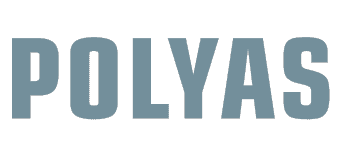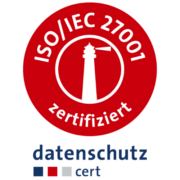Darmstadt University of Applied Sciences Digitizes University Elections and the Entire Electoral Office
Shorter preparation times combined with the option of longer voting periods and a higher voter turnout are just two of the many advantages that Darmstadt University of Applied Sciences sees in a digital university election. Prompted by the COVID restrictions imposed on physical contact during the lockdown, the university began digitizing both its elections and its entire electoral office in the winter semester of 2020–21. A step they’ve been very glad they took ever since.
Setting up the third online university election without any hassle
The elections at Darmstadt University of Applied Sciences in the 2020–21 winter semester were suddenly placed in jeopardy when the corona virus hit Germany. “Being thrown in at the deep end at the time, we decided to take a rather pragmatic approach. After all, we only had three months left to organize it,” explains Christine Willems, Acting Head of the Electoral Office of Darmstadt University of Applied Sciences. Taking the helm, she embarked on this project in cooperation with IT and the Students’ Union (AStA). Initially supervised by POLYAS Election Management, she is now using POLYAS Self Service on her own to create a large part of her third online election in 2023.
“I’ve gained a lot of confidence by trying it out for myself, even though I’m not really what you’d call tech-savvy. I can only recommend just doing it, copying a project and trying your hand with the ballot variations. I’ve found it relatively straightforward.” Christine Willems, Acting Head of the Electoral Office at Darmstadt University of Applied Sciences
Darmstadt University of Applied Sciences has full confidence in all POLYAS products
In 2023, Darmstadt University of Applied Sciences is voting online for the third time. In total, there are about 17,000 eligible voters (93% students, 7% employees, i.e. staff and professors). The university elections for students take place every year, and the major elections every two years – in which employees also vote.
The four university bodies are elected on a total of 65 ballot papers: senate, departmental councils, student councils and the student parliament (Stupa). Darmstadt University of Applied Sciences was able to set this up in POLYAS Online Voting using the Voter Groups feature. In addition to Online Voting, the University of Applied Sciences has made use of the Online Nomination option that allows students to submit nominations in advance, and Live Voting, as was the case for the President election in 2022.
According to Christine Willems, what the University’s Students’ Union appreciates most about online nomination is the following:
- It complies with data protection regulations while also being transparent, as no lists are publicly available, but nominations can be viewed by authorized persons.
- There’s no need to handwrite ballot papers any more.
- It’s accessible to students anytime, anywhere.
- It eliminates any risk of forged supporter signatures or being entered in the wrong list.
Good communication is vital for acceptance of online elections
Communication within the university played a key role in launching online voting, says Christine Willems:
“In my experience, good communication promotes acceptance – plus it’s essential to get everyone on board, have good project management and create good project documentation.”
In close cooperation with the Students’ Union (AStA) of Darmstadt University of Applied Sciences, she held talks with various stakeholders within the university, developed marketing materials and ultimately digitized the entire electoral office. In her opinion, this approach has gone a long way towards making the digital election a success – including increasing voter turnout from 13% to as much as 25%. This success is also due to longer voting periods made possible by the digitization of voting and automated counting.
In addition to a digital electoral register that has been in place for some time, the online election expedited the creation of an election website. Darmstadt University of Applied Sciences uses this website to post materials and information related to the university election, such as a video of a live stream event. An email box has also been set up for queries and issues, which students can use to get help within 24 hours.
Students and the election officers are more than satisfied with the results, so an online election can be expected again next year. Christine Willems from Darmstadt University of Applied Sciences offers the following advice to other universities:
“Don’t be afraid to digitize your university election – I promise you, you don’t have to be an IT expert to vote online with POLYAS.”




